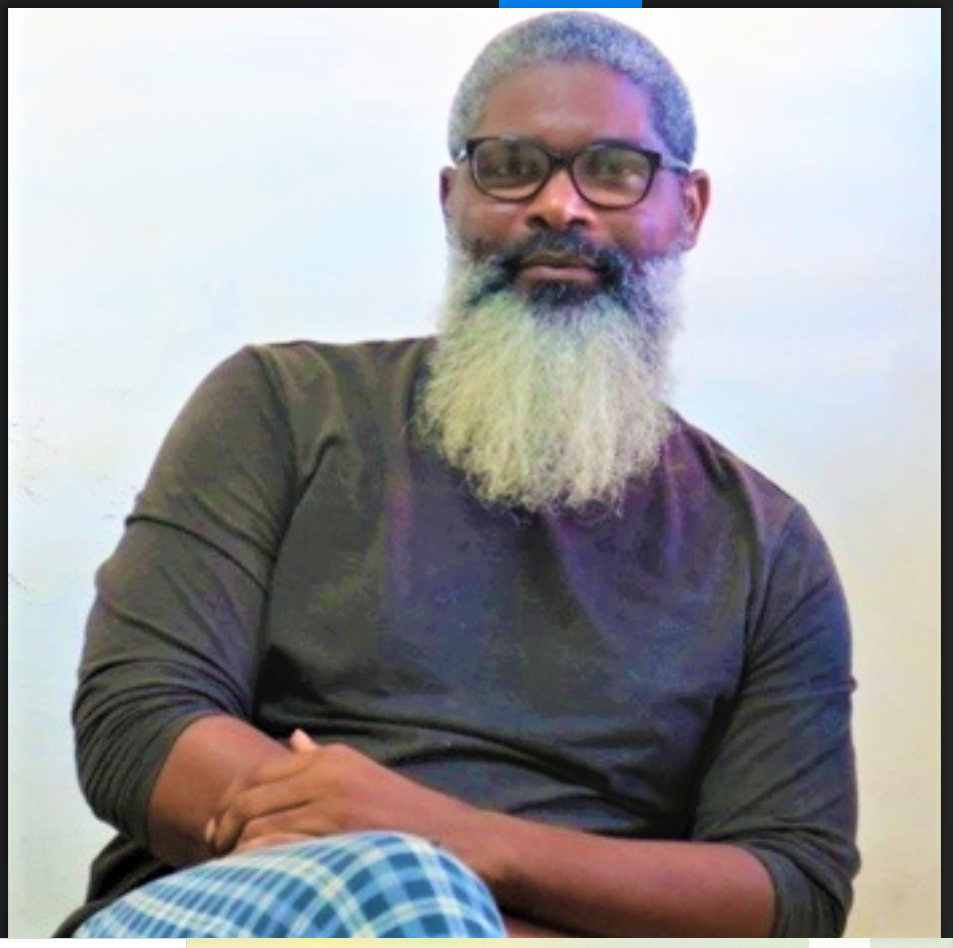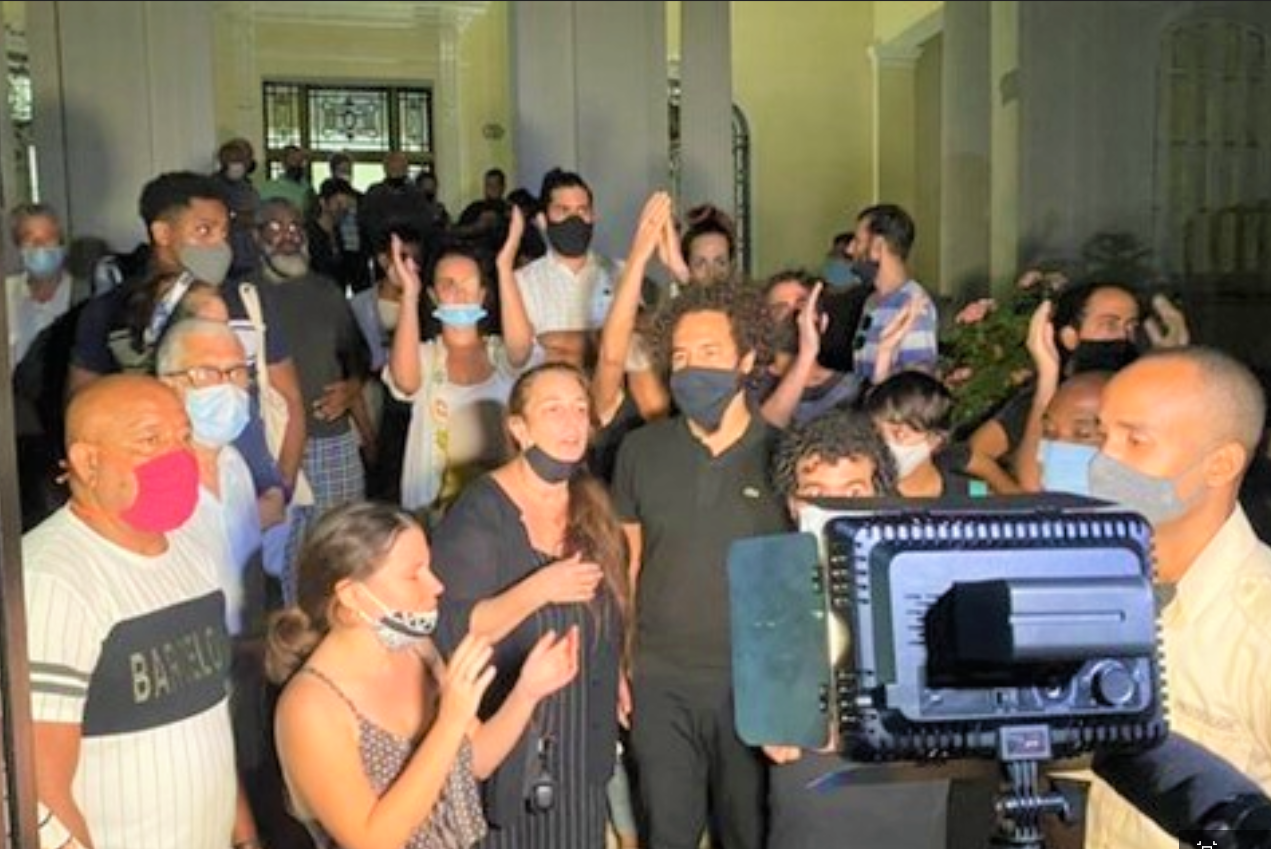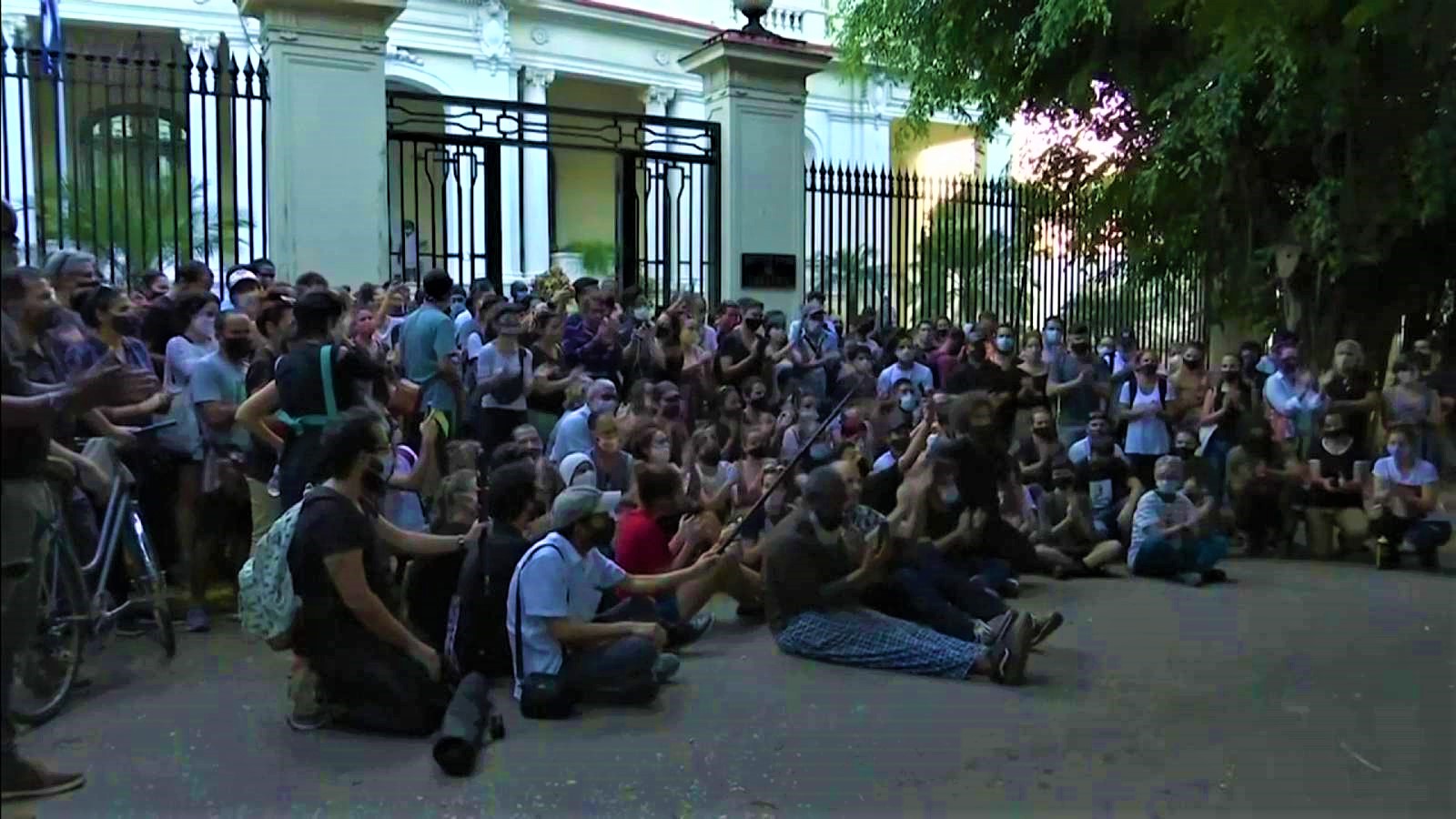Havana Times. December 8, 2020

Original Article

Amaury Pacheco a founding member of the San Isidro Movement
HAVANA TIMES – After the meeting between Vice-Minister of Culture, Fernando Rojas, and 30 representatives of hundreds of people present at the protest outside the Ministry of Culture – on November 27th – Amaury Pacheco, a founder of the San Isidro Movement (MSI), shares his experiences. He explains the meaning recent developments have had for the Movement, Cuban civil society and the future of these interrelationships.
HT: How did this process unfold? What came out of it?
Three vice-coordinators were at our houses under the siege of police patrol cars. Likewise, the people at the Movement’s central point – San Isidro and Damas Streets, in Old Havana.
We circulated information via different channels: Exchanging what was happening to everyone during this home arrest?
Things got heated when the MSI’s base was attacked [on the night of November 26]. Members of the military dressed up as doctors, wearing white coats. They broke into the space. Those present at the Base say that they were beaten. A set-up that nobody sees.
They were removed from the house under the suspicion of having COVID-19, when Carlos Manuel Alvarez, a journalist arrived on the scene, who said he came from the US.
The police withdrew from outside our homes when they went to attack our Base.
We found out that a group of Theater and Movie artists were planning to organize a peaceful protest outside the Ministry of Culture. Creating a powerful critical mass. Calling on people to come.
I said: “… they are coming together for Freedom of Expression, for what happened at San Isidro. Asking to enter a dialogue with the Ministry of Culture. I’m going!”
It was around 5 PM. Over 200 people were shouting in chorus. There was a joyful atmosphere, but there was also a lot of determination.
I was really happy to see this. We realized that what had happened in San Isidro awakened people in a way that was bigger than us.
Seeking connectedness and new spaces
The San Isidro Movement seeks Connectedness. For different spaces to open up. For people to connect with one another based on their personal experiences, techniques and peaceful means of social struggle.
We arrived and there was a list. It included Michel Matos, Aminta D’Cardenas, Claudia Genlui and Catherine Bisquet, who doesn’t belong to the Movement, but was one of the people holding a hunger strike at MSI’s base. I wasn’t included, but because I form part of the Movement, I was added in the end. This was agreed in a democratic way. I didn’t even take part.
I was surprised to see artists linked to state institutions, who don’t normally take part in these things, as it could have repercussions on them.
Some points were written down, from more general to more specific points. We talked about FreeDenis, one of MSI’s main demands, and everybody there agreed. It wasn’t MSI that brought this to the table. We joined and formed part of this Coalition.
#FreeDenis and then calling off the Hunger Strike, were our proposals for the dialogue: following protocol. Getting Luis Manuel Otero back home, his house [the MSI base] is shut off and taken over.
A wide variety of concerns and demands
There were representatives from the different arts and they all had their own struggle. Theater/Movie/Visual artists, were vindicating important agendas for independent spaces. They insisted on the need for structural change in artistic institutions.
Civil demands in general: freedom of speech, the right to dissent, to create freely, the end of state harassment, defamation and no more police violence, no more political hate, and so on.
MSI promotes cultural rights, freedoms, so the dialogue was in sync with our own objectives.
Yunior Garcia Aguilera, somebody with a lot of talent and charisma, managed to organize that conversation and laid the groundwork for the dialogue with the Ministry.
We were there since around 10 AM and we weren’t seen until 11 PM. The Minister never showed.
What happened inside the Ministry
The Delegation went in: 30 people talked to the Vice-Minister. They didn’t want to accept some people, but we really struggled and MSI got its foot in the door.
The dialogue couldn’t be broadcast live, because our cellphones were taken. It became a secret space, but we have different versions of what happened from everybody who was there.
It was a frank, cutting, straight-to-the-point conversation. We told the Government everything that was on our minds, the need for Civil Society, a Constitution and how the Government needs to abide by it. About Decree-Laws 349 and 370, which have created an earthquake.
Decree-Law 349 criminalizes the dissemination and promotion of art. Decree-Law 370 criminalizes social media communication.
Our Movement knew this wasn’t the time to discuss certain issues, but it was an opportunity that had never existed up until now. That the State took upon themselves to open institutions to a dialogue with groups they call counter-revolutionaries, dissidents, but they are just independent in reality.
Letting them know we are not afraid
The Government played this card. They told International Opinion that “there is an ongoing dialogue with the MSI, but not directly.”
The way we shared and responded to the vice-minister was truly impressive. It reminded me of shoals of fish moving altogether at the same pace. There was an inner beating, regardless of our different demands.
A powerful will to tell them that we weren’t AFRAID. That the over 400 people outside weren’t afraid. The people with whom we had reached an agreement for this dialogue and with whom we would have to speak with afterwards.
This generation has shaken off its fear, just like we have to do what we do. It’s a great thing on a national level and proof that there is social discontent in Cuba.
The State isn’t controlling everything that happens, it’s just not true. There is social debilitation, though. We need political change, yes, a strategic change on how to build the nation.
Everything outside was said out loud. Everyone agreed with these demands.
We broke our fear. We looked at each other, acknowledged each other and spoke. That was the power there. We opened the door, so the Government had to sit down and talk under pressure. The people were determined, “We won’t leave until…”.
San Isidro had ignited the flame that connected many people.
Practing what we want for the country
There were many artists, but we were talking about citizenship, individual rights, social rights, human rights, not just cultural rights. Comprehensive issues, but key issues.
We practiced what we want for the country. It was a dangerous action, like the human body: muscles, mind, neurones, everything moving for a specific action. It’s what we practice in San Isidro, and it managed to awake citizens.
Being a person – an important part – practicising citizenship, reflects the other parts. They don’t work on their own. People are the most human thing that exists. Individuals with their own things, own way of doing things, getting places, moving forward with their lives. Citizens facing laws, how it orders them, their place in the current hierarchy, in society.
This point about citizenship and exercising democracy, of reaching a consensus, is very important. It is something that this generation truly has. If you are under the yoke of totalitarianism, a wisp of democracy can appear. We all came to an agreement. Coming up with agendas that we can all push together, and not via a hierarchy or dictatorial space.
There wasn’t a dialogue with MSI. We took part in something a lot larger, civil society speaking, saying: “…we want to take your points to the table because they are important, somebody is dying.”
Filmmaker Fernando Perez was an important witness
Fernando Perez, a well-respected filmmaker, was also at the table. He said that he wouldn’t speak, but watching everyone say their piece, he also decided to say a few words. This was important because it made the involvement of different generations clear. Every generation has its own social history in Cuba, with very specific characteristics.
The Vice-Minister said that they could find a solution for demands within the artistic and cultural sector, but there were other demands that needed to be talked over with other institutions, and he made a note of this. He said that everything depended on processes.
Connections were made for meetings, a platform for dialogue with some of the arts. General issues would be discussed at a later date, when they could be looked over with the Minister.
Press conferences would be held about what happened there because “… we owe it to the people outside.”
Many followers of the tense developments at San Isidro’s base, felt like the Movement had ended and this isn’t true.
Channels of domestic politics in Cuba are very slow. If you don’t have a position in the public space and spaces of pressure, there isn’t anything that allows you to sit down at the negotiations table.
The agreements made
The agreements we made by the time we left, included: A channel of dialogue with cultural institutions. Address the issue of Denis Solis Gonzalez and Luis Manuel Otero Alcantara “urgently”. Independent artists can meet without being harassed, among other points, such as the safeguard of going home that night without suffering police harassment.
The Government says: “We don’t work under pressure.” So we have to pressure them; they pressure us all the time. In the meeting, a young woman said: “We aren’t here to pressure you, we are here to give you a chance to enter a dialogue and change what’s happening.”
It was like saying: We are giving you a chance to renew your own foundations… because this is going to go ahead regardless. It’s going to be huge… and you won’t be able to stop it. You are rusty as a State. You don’t understand what is happening. New generations don’t understand these dated procedures.
The government will renege on this meeting, but it really has changed Cuban reality. We know that it is being replicated in Matanzas. It could even explode on a national level.
Manipulation and back-tracking
The Government has manipulated everything in its official account of events.
What happened in that room hasn’t had a historic precedent in these past 60 years.
San Isidro has its own list of proposals, which haven’t ended: Luis Manuel and Maykel Osorbo held a hunger strike. San Isidro has very clear strategies. Our reports are clear on our social media pages.
MSI has gained many followers with successful campaigns. Ever since Decree-Law 349 was announced, as well as all of the attacks against Luis Manuel have become successful campaigns, because of what we have done.
I’m grateful to these people – many young people – who said: ENOUGH! and chose to stand outside the Ministry. We know what happens to people who speak openly in Cuba’s public space. The street is the Communist Party’s private property. Public spaces are pretty much closed off.
Recent events have opened-up a space forever. Many other things can be pushed forward. It’s happening as we speak.
Note: *During this interview, we learned that Luis Manuel Alcantara was under arrest in a hospital. His location had been unknown.
Also read this followup article when days later the governernment backed out of future talks.






